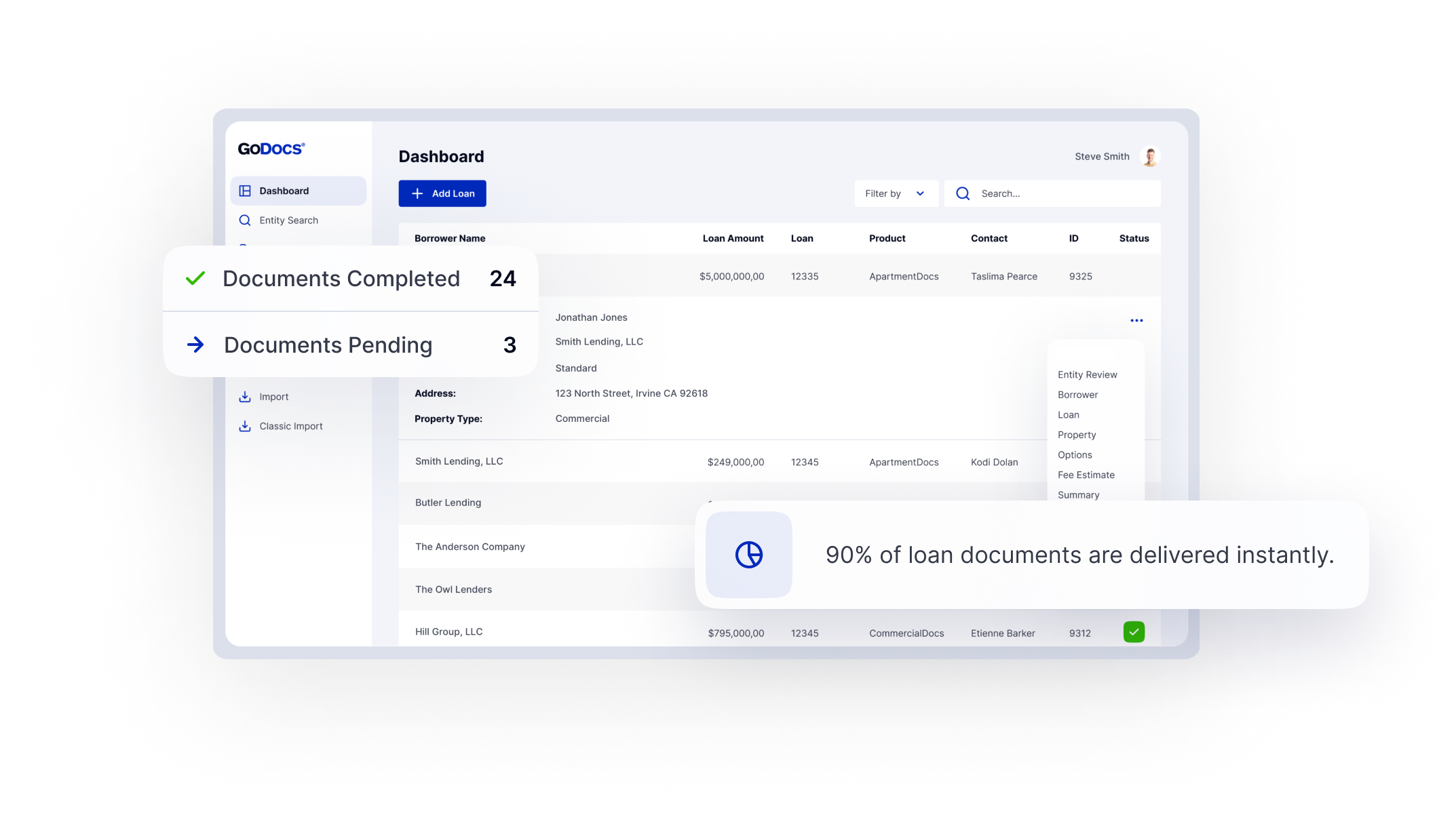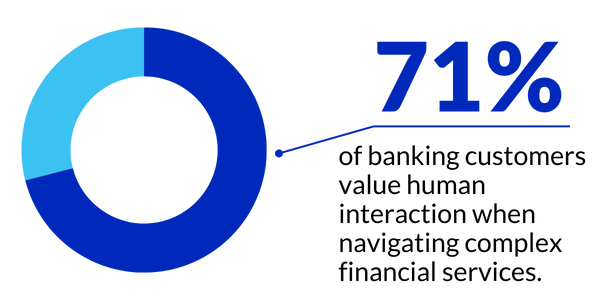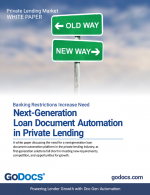In a quickly changing commercial real estate lending environment, adaptability is the key to success. As borrowers seek diverse financing options and lenders navigate the intricacies of the modern lending market, alternative lending strategies have emerged as powerful tools. GoDocs was prominently featured in an exclusive REI INK article that shed light on the pivotal role of alternative lending in today’s shifting terrain.
The REI INK article explores five essential alternative lending strategies that are set to reshape the industry: Bridge Lending, Mezzanine Financing, Construction Loans, Debt Fund Participation, and Portfolio Lending. These strategies provide flexibility, efficiency, and precision to both lenders and borrowers dealing with the changing requirements of the active real estate market.
Get the White Paper!
Next-Generation Loan Document Automation in Private Lending
As banking restrictions increase need, private lending first-gen solutions fall short in meeting new requirements. Get the facts.
By demonstrating the adaptability and efficiency of the platform, GoDocs demonstrates how automation streamlines operations, ultimately expediting loan development and closing processes. This efficiency enables lenders to accomplish more with less, swiftly adapt to new loan products and regions within minutes, and expand loan volume, all while minimizing disruption in change management and optimizing resource usage.
Key Takeaways
Adaptability is Key: The commercial real estate lending landscape is constantly evolving, and adaptability is crucial for success. Alternative lending strategies provide the versatility needed to navigate the shifting terrain.
Efficiency through Automation: Automation solutions, like GoDocs, empower lenders to streamline operations, covering everything from document creation to review, ensuring smooth transactions with fewer resources. This allows lenders to do more with less, optimize for maximum returns, and easily scale their lending business with a robust, always-compliant solution.
Customized Solutions Matter: GoDocs highlights the importance of tailoring automation solutions to meet the unique needs of different lending strategies, ensuring precision and effectiveness in managing complexities.
The article provides crucial insights into the fast-changing landscape of alternative lending. It emphasizes the importance of adaptability, efficiency, and solutions that fit the needs of today. In a continually shifting lending landscape, integrating innovative tools like GoDocs can significantly enhance how lenders operate, positioning them for success in this dynamic market.
Experience the Future of Commercial Loan Automation
Our cutting-edge platform empowers financial professionals like you to revolutionize how commercial loan documentation is managed. Experience a world where time-consuming paperwork is a thing of the past.
Gaining a Competitive Edge with GoDocs
To maintain or gain the competitive edge and strive to be #1 in the lending industry, private lenders must continually adapt and evolve. Embracing next-generation technologies and solutions becomes imperative, and that includes harnessing the power of the loan document automation ecosystem offered by GoDocs. By leveraging GoDocs’ cutting-edge automation tools, private lenders can streamline their loan document processes, improve efficiency, reduce errors, reduce resources, and enhance operations to handle any loan type, any loan size, and any loan volume while mitigating risk automatically.

Myth 4: Switching to a new loan document solution will be just as frustrating as the last time.
Legacy loan closing systems have created misconceptions about what’s possible in commercial loan documentation. In Set the Record Straight, GoDocs leaders challenge outdated assumptions and

Myth 3: Switching systems is too disruptive.
Legacy loan closing systems have created misconceptions about what’s possible in commercial loan documentation. In Set the Record Straight, GoDocs leaders challenge outdated assumptions and

Myth 2: Closing document customization requires outside counsel.
Legacy loan closing systems have created misconceptions about what’s possible in commercial loan documentation. In Set the Record Straight, GoDocs leaders challenge outdated assumptions and




